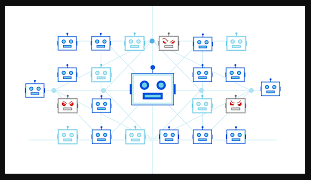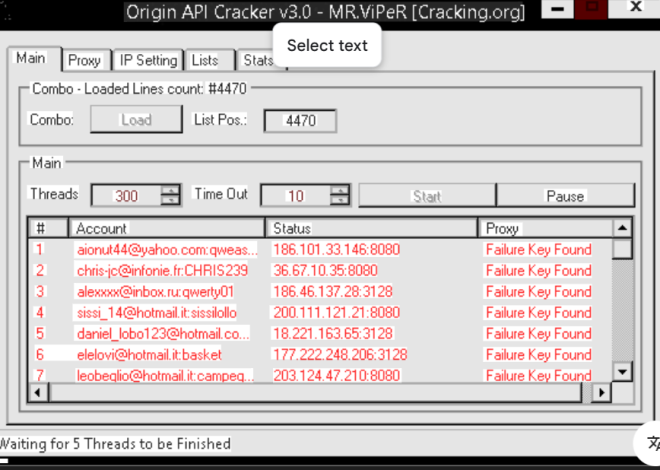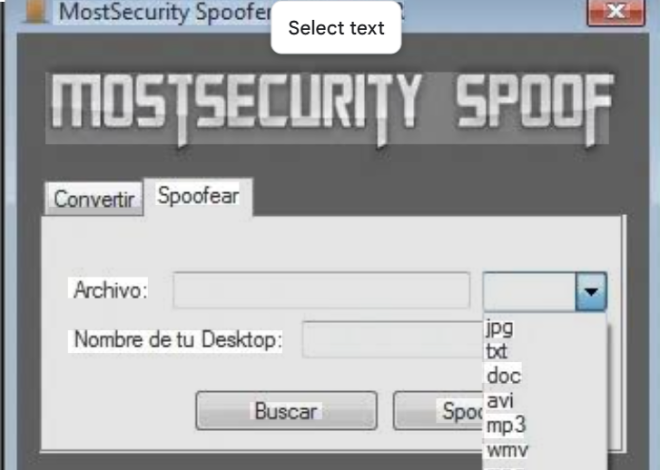
Mirai Eye Rat 2025 Cracked
Mirai Eye Rat 2025 has emerged as a dangerous Remote Access Trojan (RAT) frequently deployed in targeted cyberattacks, particularly in espionage and data theft campaigns. Unlike generic malware, Mirai Eye is designed for stealth and persistence, allowing attackers to maintain long-term access to compromised systems. It is commonly used against high-value targets, including government agencies, corporations, and activists, due to its ability to evade detection while exfiltrating sensitive information. The malware’s modular structure and encrypted communication make it a preferred tool for advanced threat actors seeking to conduct surveillance or steal intellectual property without raising alarms.
Download Link 1
Download Link 2
Download Link 3
Download Link 4
What Is Mirai Eye RAT and How Is It Used?
Mirai Eye RAT is a sophisticated malware strain that provides attackers with remote control over infected devices. It is typically distributed through spear-phishing emails, malicious downloads, or exploit kits targeting unpatched software vulnerabilities. Once installed, the RAT establishes a connection to a command-and-control (C2) server, enabling threat actors to execute commands, capture screens, log keystrokes, and exfiltrate files. Its primary use cases include corporate espionage, credential theft, and as a launching pad for further network intrusions.
Key Features of Mirai Eye RAT
| Feature | Description |
| Remote Desktop Control | Allows attackers to interact with the victim’s desktop in real time. |
| Persistence Mechanisms | Ensures survival across reboots via registry modifications or task scheduling. |
| Keylogging | Records keystrokes to steal passwords, credit card details, and other sensitive data. |
| Screen Capture | Takes periodic screenshots to monitor victim activity. |
| File Exfiltration | Uploads stolen documents, databases, and media files to attacker-controlled servers. |
| Process Injection | Conceals itself within legitimate processes to evade detection. |
| Encrypted C2 Traffic | Uses secure communication channels (HTTPS, custom encryption) to avoid detection. |
| Webcam & Audio Capture | Activates the victim’s camera and microphone for surveillance. |
| Lateral Movement | Spreads across networks using stolen credentials or exploits. |
How Mirai Eye RAT Works: Infection, Execution, and Payload Delivery
1. Initial Infection Vector
Mirai Eye RAT typically infiltrates systems through:
- Spear-Phishing Emails: Malicious attachments (e.g., PDFs, Office docs with macros) or links to fake login pages.
- Drive-By Downloads: Exploits browser or plugin vulnerabilities (e.g., Flash, Java) to silently install the payload.
- Malicious Software Bundles: Disguised as legitimate apps (e.g., pirated software, fake installers).
Once executed, the malware drops a payload that disables security tools (e.g., Windows Defender) and establishes persistence.
2. Persistence and Stealth Mechanisms
To remain undetected, the RAT employs techniques such as:
- Registry Modifications.
- Scheduled Tasks.
- Process Hollowing.
3. Command-and-Control (C2) Communication
The malware connects to its C2 server using:
- Dynamic DNS (DDNS): Frequently changes domains to avoid blacklisting.
- Tor or proxies: Masks the attacker’s real IP address.
- Encrypted Channels: Uses SSL/TLS or custom encryption to hide traffic.
4. Malicious Activities and Payload Execution
Once active, attackers can:
- Steal Credentials: Harvests saved passwords from browsers and keyloggers.
- Execute Remote Commands: Runs scripts, disables security tools, or deletes files.
- Deploy Secondary Malware: Downloads ransomware, spyware, or banking trojans.
- Conduct Surveillance: Records audio, captures webcam footage, or monitors clipboard data.
5. Evasion and Anti-Analysis Techniques
To avoid detection, Mirai Eye RAT may:
- Delay Execution: Waits before activating to bypass sandbox analysis.
- Check for Virtual Machines: It terminates if it detects a sandbox or analysis environment.
- Disable Security Logs: Clears event logs to erase traces of malicious activity.


